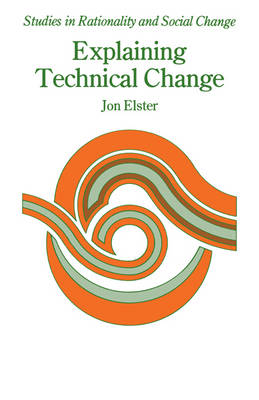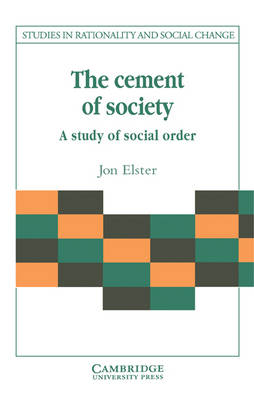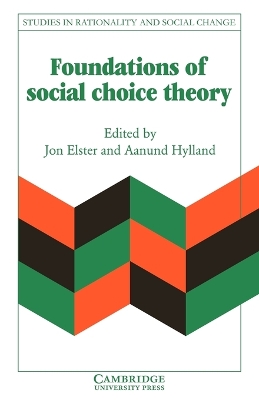Studies in Rationality and Social Change
3 total works
Technical change, defined as the manufacture and modification of tools, is generally thought to have played an important role in the evolution of intelligent life on earth, comparable to that of language. In this volume, first published in 1983, Jon Elster approaches the study of technical change from an epistemological perspective. He first sets out the main methods of scientific explanation and then applies those methods to some of the central theories of technical change. In particular, Elster considers neoclassical, evolutionary, and Marxist theories, whilst also devoting a chapter to Joseph Schumpeter's influential theory.
The question Jon Elster addresses in this challenging book is what binds societies together and prevents them from disintegrating into chaos and war. He analyses two concepts of social order: stable, predictable patterns of behaviour, and co-operative behaviour. The book examines various aspects of collective action and bargaining from the perspective of rational-choice theory and the theory of social norms. It is a fundamental assumption of the book that social norms provide an important kind of motivation for action that is irreducible to rationality. The book represents a major statement by Elster, which will be of particular interest to political scientists, political philosophers, sociologists, and economists.
The essays in this volume, first published in 1986, examine the philosophical foundations of social choice theory. This field, a modern and sophisticated outgrowth of welfare economics, is best known for a series of impossibility theorems, of which the first and most crucial was proved by Kenneth Arrow in 1950. That has often been taken to show the impossibility of democracy as a procedure for making collective decisions. However, this interpretation is challenged by several of the contributors here. Other central issues discussed in the volume include the possibility of making interpersonal comparisons of utility, the question of whether all preferences are equally to be valued, and the normative individualism underlying the theoretical tradition. Criticisms of social choice theory are advanced and suggestions for alternative approaches are developed.


